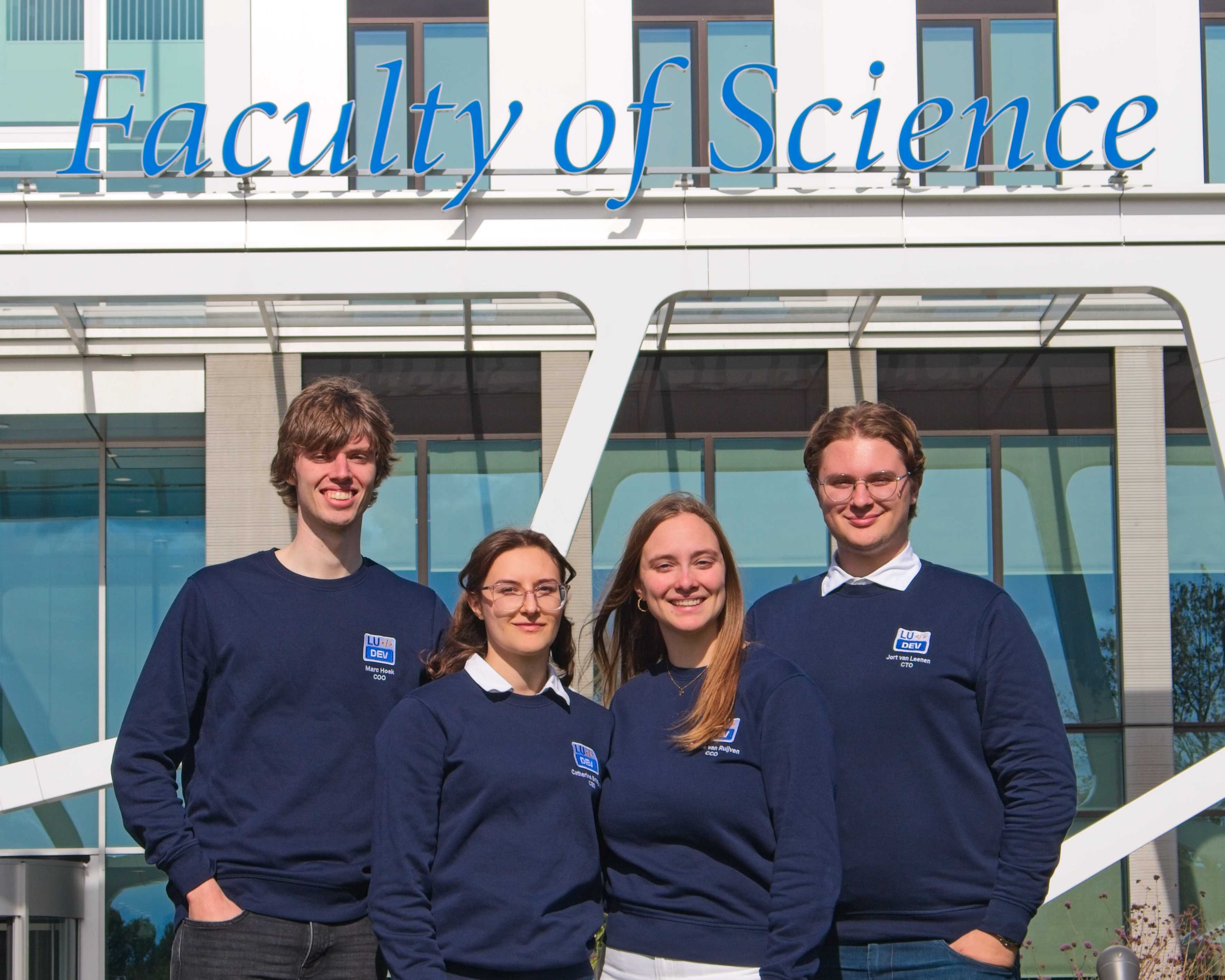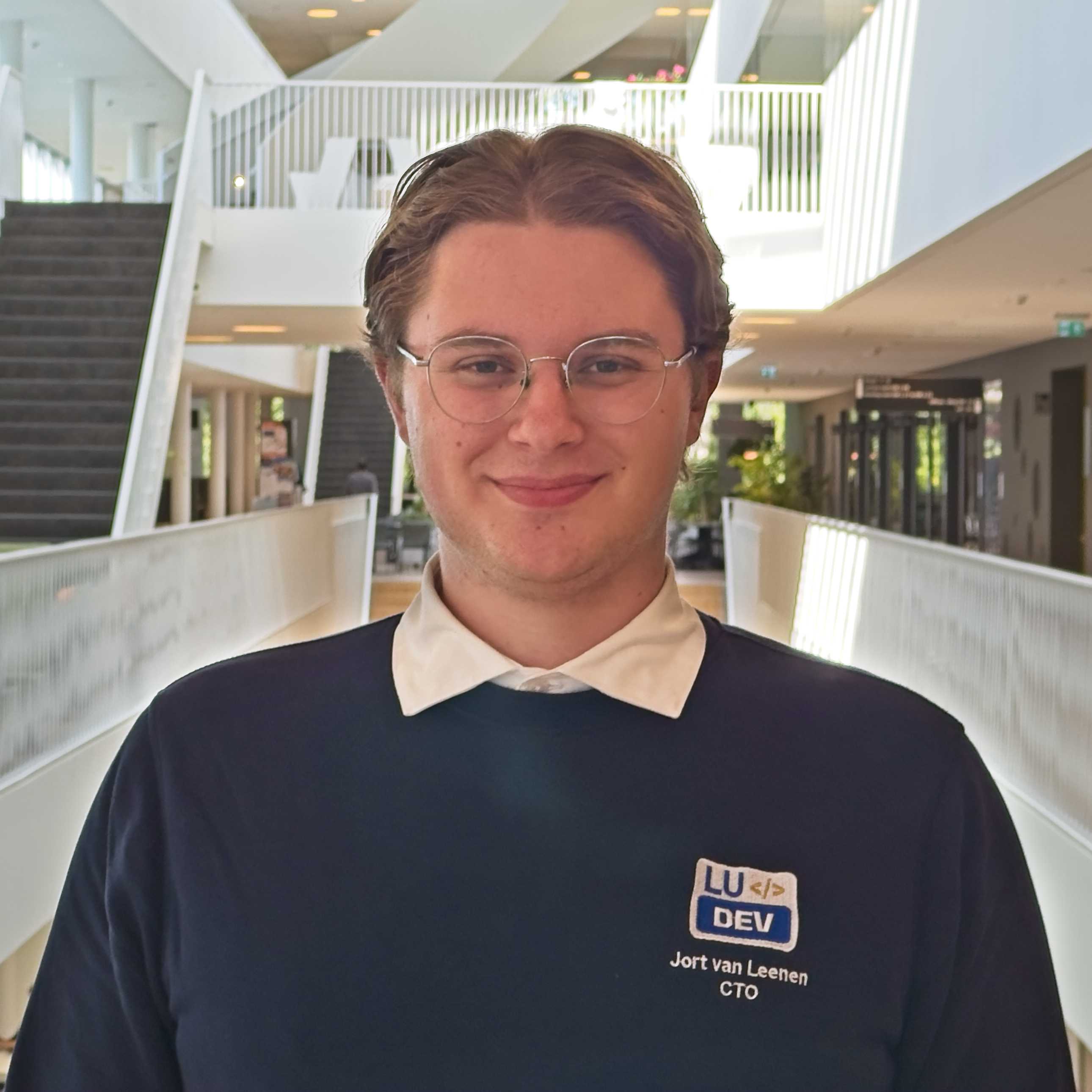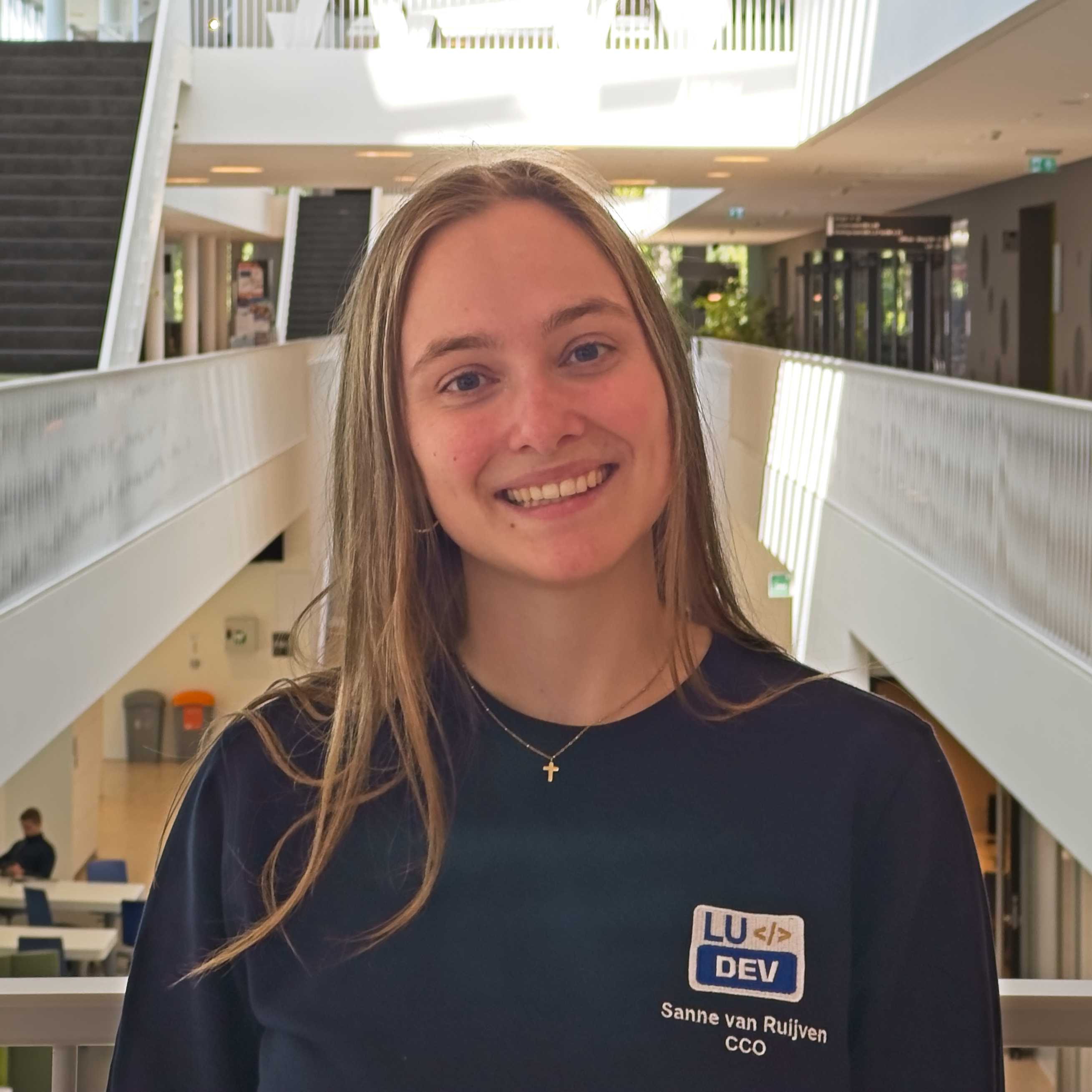Team & process
A team has around six students who dedicate approximately 500 hours in total to your project. We follow Agile methodologies.
The software company run by students at the Leiden Institute of Advanced Computer Science
LUdev in brief
We assemble teams of final-year bachelor students, from Computer Science, Data Science & Artificial Intelligence (AI), Bioinformatics, and Informatics & Economics (all at Leiden University), to deliver focused software products over approximately 5 months (February → ≈June). Work proceeds in Agile sprints with (at least) biweekly check-ins, supervised by experienced faculty and teaching staff.
Our students are skilled in modern languages and frameworks, with experience spanning web applications, data analysis, and machine-learning. They also adopt new technologies quickly, allowing them to pick up yet unfamiliar tooling as the project requires. We prioritise clear communication, realistic scoping, and delivering concrete outcomes aligned with your vision.
A team has around six students who dedicate approximately 500 hours in total to your project. We follow Agile methodologies.
The project lasts one semester (February → ≈June). Students work in bi-weekly sprints and regular have check-ins.
Teams work largely independently, resulting in minimal integration overhead. Additionally, focus is on a scoped MVP, rather than open-ended placement work.
How we work
LUdev offers a straightforward collaboration model that respects your time and delivers concrete outcomes.
Share your idea and objectives. Together, we refine the scope, success criteria, and constraints. If your idea is still forming, we can explore options with you.
We assign a team of (around six) motivated students whose skills and interests best align with your project. From this moment onwards, you will be in direct contact with your team and can communicate your feedback and priorities. LUdev steps back and takes a supervisory role.
From February to around the end of June, the assigned student team works on your project. You will meet with them (physically or digitally) every two weeks to review progress and give feedback. Deliverables typically include a working prototype, source code, and agreed documentation.
Our approach & deliverables
Partnerships are two-way investments: you receive fresh perspectives and software that may range from prototype to fully working solution, while students gain real-world experience. See our portfolio for previous outcomes.
The software developed by our student teams is often a strong proof of concept or a functional prototype. While the projects are carried out with dedication and under guidance, they may not always be fully production-ready. Many organizations use the outcomes as a foundation for further development, either internally or through continued collaboration.
Costs
Free of charge, ideal for educational, research, and charitable initiatives.
Projects run February–June. Non-commercial collaborations are free; commercial projects have a modest fee.
Current Board
LUdev is led by students, with support from faculty in both advisory and supervisory roles. Together they run the organisation and guide project teams.


CEO
As a recent Bachelor’s graduate in Data Science & AI, I have gained experience working on a wide range of projects, which sparked my passion for applying academic knowledge to real-world challenges. As CEO of LUdev, I will be responsible for the overall direction and management of the organization, providing strategic oversight and representing LUdev externally to strengthen collaborations with partners.

CTO
With four years of undergraduate education in Computer Science and hands-on experience through various (extracurricular) projects, I now oversee the technical infrastructure at LUdev. In this role, I also support and guide both clients and students in navigating technical challenges they may face.

CCO
As a graduate of the Bachelor in Computer Science & Economics, I combine technical knowledge with business insight to bridge the gap between IT and organizational needs. As CCO, I am responsible for managing our partnerships and ensuring clear, effective communication with the companies we collaborate with.

COO
With my experience in mentoring student groups and managing many software projects during my bachelor's in computer science, I will be responsible for implementing the CEO's plans and ensuring that the business runs smoothly. This involves overseeing the progress of company staff, managing day-to-day operations and supporting other staff as needed.
